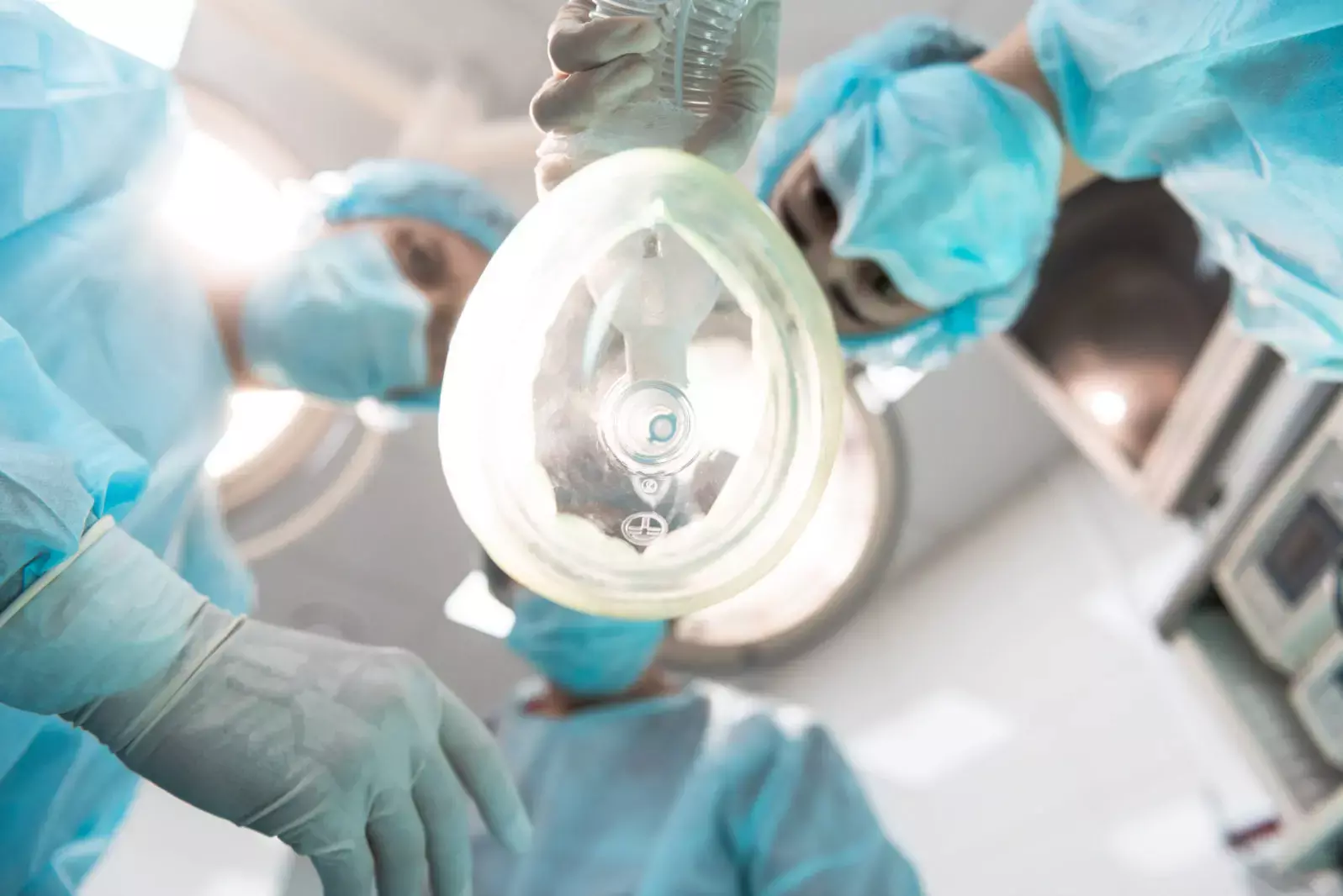- Home
- Medical news & Guidelines
- Anesthesiology
- Cardiology and CTVS
- Critical Care
- Dentistry
- Dermatology
- Diabetes and Endocrinology
- ENT
- Gastroenterology
- Medicine
- Nephrology
- Neurology
- Obstretics-Gynaecology
- Oncology
- Ophthalmology
- Orthopaedics
- Pediatrics-Neonatology
- Psychiatry
- Pulmonology
- Radiology
- Surgery
- Urology
- Laboratory Medicine
- Diet
- Nursing
- Paramedical
- Physiotherapy
- Health news
- Fact Check
- Bone Health Fact Check
- Brain Health Fact Check
- Cancer Related Fact Check
- Child Care Fact Check
- Dental and oral health fact check
- Diabetes and metabolic health fact check
- Diet and Nutrition Fact Check
- Eye and ENT Care Fact Check
- Fitness fact check
- Gut health fact check
- Heart health fact check
- Kidney health fact check
- Medical education fact check
- Men's health fact check
- Respiratory fact check
- Skin and hair care fact check
- Vaccine and Immunization fact check
- Women's health fact check
- AYUSH
- State News
- Andaman and Nicobar Islands
- Andhra Pradesh
- Arunachal Pradesh
- Assam
- Bihar
- Chandigarh
- Chattisgarh
- Dadra and Nagar Haveli
- Daman and Diu
- Delhi
- Goa
- Gujarat
- Haryana
- Himachal Pradesh
- Jammu & Kashmir
- Jharkhand
- Karnataka
- Kerala
- Ladakh
- Lakshadweep
- Madhya Pradesh
- Maharashtra
- Manipur
- Meghalaya
- Mizoram
- Nagaland
- Odisha
- Puducherry
- Punjab
- Rajasthan
- Sikkim
- Tamil Nadu
- Telangana
- Tripura
- Uttar Pradesh
- Uttrakhand
- West Bengal
- Medical Education
- Industry
Complete Anesthesia Handover Is Linked With Unfavourable Outcomes During CV Surgery

The handover of care from one anesthesiologist to another is an important intraoperative event and a particularly vulnerable time for patients. Successful handover involves a continuing provision of care by the primary anesthesiologist while effectively communicating key patient and procedure-related details to the replacement anesthesiologist. Conversely, patient safety could be compromised and continuity of care disrupted if key details are missed.
A recent study suggests that anesthesia handover was associated with a higher risk of death at 30 days and 1-year and with an increase in health care resource use. The study findings were published in the JAMA Network Open on February 11, 2022.
Complete anesthesia handover has been implicated in perioperative mortality and adverse events in the setting of noncardiac surgery, but its impact on patients who undergo cardiac surgery remains unclear. Therefore, Dr Louise Y. Sun and her colleagues conducted a study to compare the outcomes of patients who were exposed to anesthesia handover vs those who were unexposed to anesthesia handover during cardiac surgery.
In a retrospective cohort study, the researchers included patients who had undergone coronary artery bypass grafting or aortic, mitral, tricuspid valve, or thoracic aorta surgical procedures between 2008 and 2019. They evaluated the complete handover of anesthesia care, where the case is completed by the replacement anesthesiologist. The outcomes assessed were mortality within 30 days and 1 year after surgery. They also assessed the patient-defined adverse cardiac and noncardiac events (PACE), intensive care unit (ICU), and hospital lengths of stay (LOS).
Key findings of the study:
- Among 102 156 patients in the cohort, the researchers found that handover occurred in 1926 patients (1.9%) was associated with higher risks of 30-day mortality (hazard ratio [HR], 1.89) and 1-year mortality (HR, 1.66), as well as longer ICU (risk ratio [RR], 1.43) and hospital (RR, 1.17) LOS.
- However, they found no statistically significant association between handover and PACE (30 days: HR 1.09; 1 year: HR 0.89).
The authors concluded, "In this study, complete intraoperative handover of anesthesia care was associated with a higher risk of death at 30 days and 1-year and increased health care resource use compared with no handover. Further research is needed to devise strategies to balance the well-being of anesthesia clinicians and the adverse impact of physician fatigue with unintended information loss during the handover process."
In an accompanying editorial, Dr Laurent Glance and colleague point out that in the observational study, making a causal connection between intraoperative handoffs and mortality is fraught because of the risk of unmeasured confounding variables, but add that the IPTW analysis helps mitigate some, but not all, of those concerns.
They further added, "Meanwhile, we must strive to optimize the handover process to minimize the potential for patient harm when care is shifted from one anesthesiology team to another."
For further information:
Medical Dialogues Bureau consists of a team of passionate medical/scientific writers, led by doctors and healthcare researchers. Our team efforts to bring you updated and timely news about the important happenings of the medical and healthcare sector. Our editorial team can be reached at editorial@medicaldialogues.in.
Dr Kamal Kant Kohli-MBBS, DTCD- a chest specialist with more than 30 years of practice and a flair for writing clinical articles, Dr Kamal Kant Kohli joined Medical Dialogues as a Chief Editor of Medical News. Besides writing articles, as an editor, he proofreads and verifies all the medical content published on Medical Dialogues including those coming from journals, studies,medical conferences,guidelines etc. Email: drkohli@medicaldialogues.in. Contact no. 011-43720751


